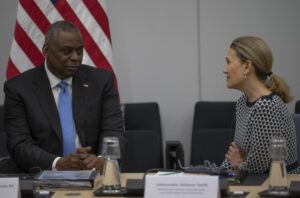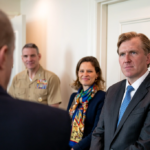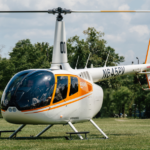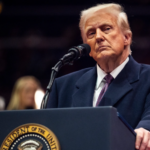
NATO’s new strategic concept will include highlighting challenges posed by China for the first time, according to a lead official, while retaining Russia as the alliance’s “preeminent challenge, primary threat.” Ambassador Julianne Smith, the U.S. permanent representative to NATO, told reporters Wednesday the new strategic concept, set to be unveiled at the NATO summit in Madrid later this month, must do a better job of capturing the “China-Russia alignment." “Given what they’re saying, given joint exercises, given the no-limits partnership,…

 By
By 










